We don’t want to overwhelm you, but while you’re catching up with our top 50 films of 2019, more cinematic greatness awaits in 2020. Ahead of our 100 most-anticipated films (all of which have yet to premiere), we’re highlighting 40 titles we’ve enjoyed on the festival circuit this last year (and beyond) that either have confirmed 2019 release dates or are awaiting a debut date from its distributor. There’s also a handful of films seeking distribution that we hope will arrive in the next 12 months, which can be seen here.
Les Misérables (Ladj Ly; Jan. 10)

Les Misérables is–incredibly, it should be said–the first feature of Ladj Ly, a 39-year-old Saint Denis native and a product of Kourtrajmé, a short film collective that was set up by Romain Gavrais and Kim Chapiron in 1994. (Gavrais’ artistic fingerprints can be seen all over Ly’s fascination with football jerseys and male tribalism.) The film expands on a short Ly shot a couple of years back (also titled Les Misérables and winner of the best short film at France’s prestigious César awards) that focused on an anti-crime unit and the brutality of their policing. The same actors reprise their roles here in a debut that pops like a stun grenade despite the conventions of its opening sequences, the first of which takes place on the day of France’s world cup win last year, a rare unifying moment for the nation. Ly suggests that the only thing each of his characters–perhaps each of his countrymen–has in common is how good they think Kylian Mbappé (a French striker, notably of Algerian and Cameroonian heritage) really is. – Rory O. (full review)
Weathering with You (Makoto Shinkai; Jan. 17)

Because Weathering with You is a Makoto Shinkai film, however, things don’t stop at two teens trying to survive on their own in a society that’s made it illegal to walk the streets as an unaccompanied minor. We must also talk about their current environment and its record-breaking rainfall erasing summer right off the calendar. With scientists unable to explain what’s happening, psychics pick up the slack. They speak about legends and Weather Maidens with Dragon properties (bringing the storms) and Sun properties (breaking them apart). It’s all a bunch of baloney Hodaka’s boss Keisuke Suga (Shun Oguri) uses to sell tabloids until Hina reveals what she can do when praying towards the sky. She’s a bona fide Sunshine Girl—the key to saving Tokyo from natural disaster. – Jared M. (full review)
Color Out of Space (Richard Stanley; Jan. 24)

Color Out of Space has long been one of H.P. Lovecraft’s scariest stories and central to that is its focus on a fear of not just the unknowable but the intangible, the things happening all around us all the time that we can’t even begin to perceive or comprehend. Lovecraft himself saw the story as a direct confrontation of contemporary sci-fi writers who thought of aliens in terms of human physicality and organization; a rebuke of the idea that when contact is made that we could remotely understand or be understood. This is precisely why South African genre filmmaker Richard Stanley was an excellent choice to adapt it. – Josh L. (full review)
Zombi Child (Bertrand Bonello; Jan. 24)
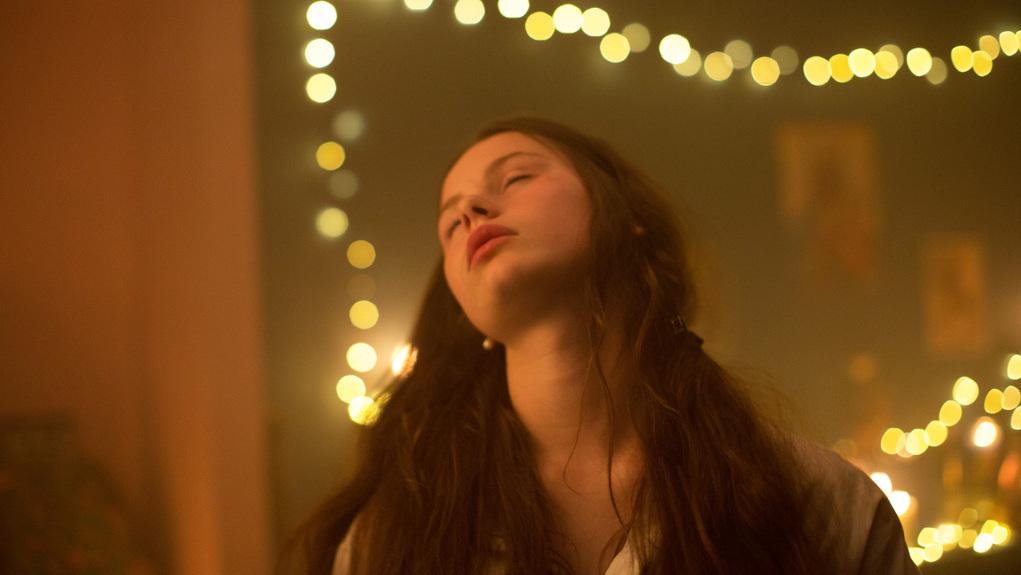
Bertrand Bonello’s last film, the terrorism-themed thriller Nocturama, hit headlines as it was released in the wake of Islamic State terror attacks in France. Supposedly it was the reason the film didn’t debut in competition at Cannes that year and with the compelling Directors’ Fortnight premiere Zombi Child, the director has again swerved away from official selection. Where Nocturama pointed to a seething social tension that Bonello believed present in the undercurrent of contemporary France, this is a genre-blending horror satire on the country’s racial divisions that delves into the country’s post-colonial heritage and the myth of Haitian zombie legend. – Ed F. (full review)
Beanpole (Kantemir Balagov; Jan. 29)
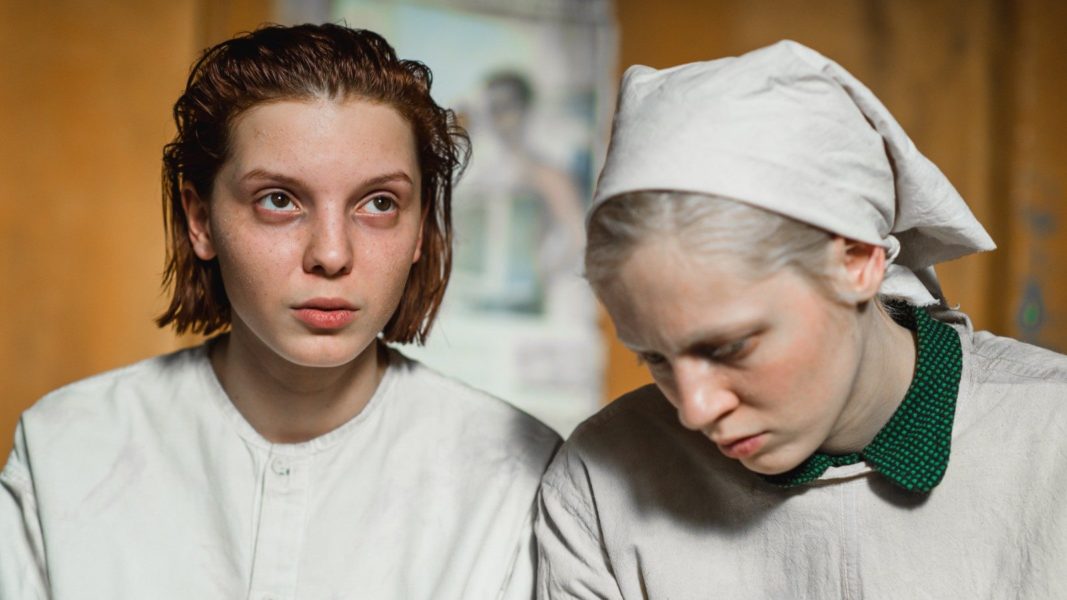
The horrors of war are often told through male-centric narratives. Heroes who go through hell on the battlefield, brothers who sacrifice everything for each other, soldiers who return home scarred for life etc., all of which we’ve seen put on the big screen time and again. But wars are of course collective nightmares, tears in the fabric of history that leave no one–men, women, children–unscathed. This is the premise of Russian writer–director Kantemir Balagov’s second feature Beanpole, a radical relationship drama that examines the trauma of war from a distinctly female perspective. – Zhuo-Ning Su (full review)
The Traitor (Marco Bellocchio; Jan. 31)
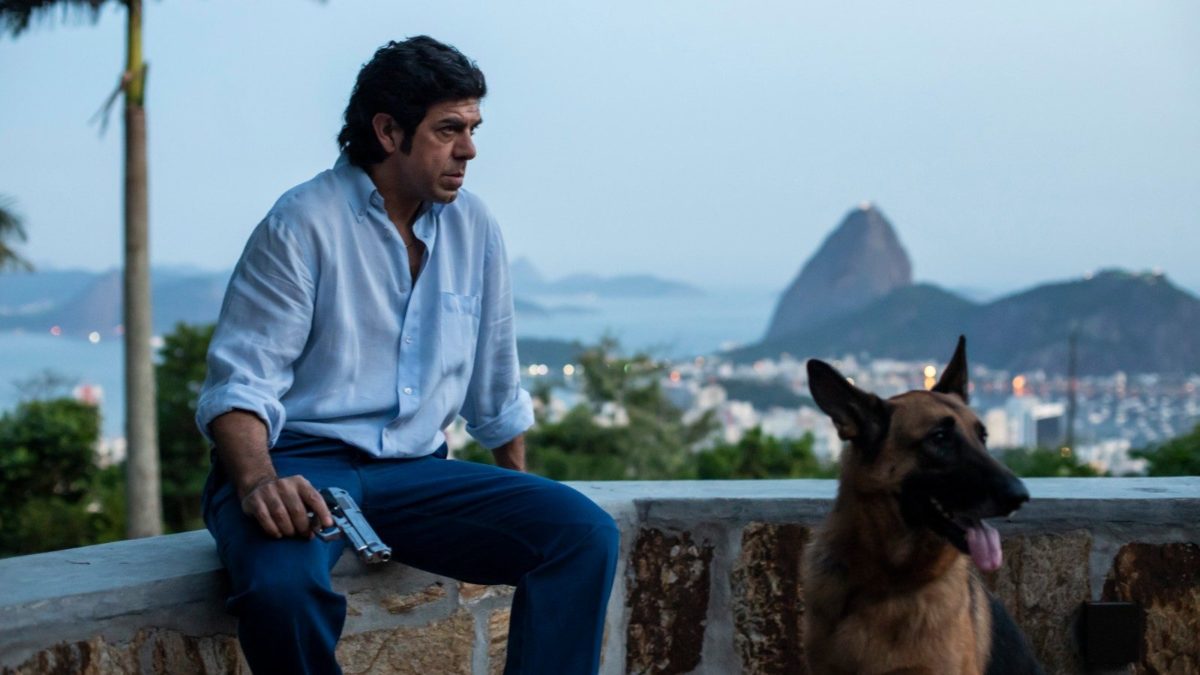
Despite 55 long and active years in the film industry and a long list of accolades, Marco Bellocchio remains one of the less recognized Italian auteurs of his stature–an unfathomable distinction when considering the palatable (dare I even say fun) nature of his arthouse cinema. The nonagenarian director’s latest work The Traitor, while retaining the politically-charged and controversially thematic nature of his past films, is perhaps his most accessible work yet. Following real-life mafia boss Tommaso Buscetta–a figure ripe for adaptation–the film may better be described as a gangster movie in reverse. Ignore the genre conventions that romanticize the mercurial rise-and-fall nature of organized crime and create easy villains out of snitches with selfish motives. After a gruesome, rapid-paced montage of mob assassinations opens the film and satisfies the expectation of violence, Bellocchio picks up on Buscetta’s life in post-retirement Brazil, faraway and safe. Buscetta’s significance is not in his rank-climbing glory days with the Cosa Nostra crime syndicate, Bellocchio promises, but rather in his active participation in its downfall–as one of the first members to provide information to officials. – Jason O. (full review)
The Lodge (Severin Fiala and Veronika Franz; Feb. 7)
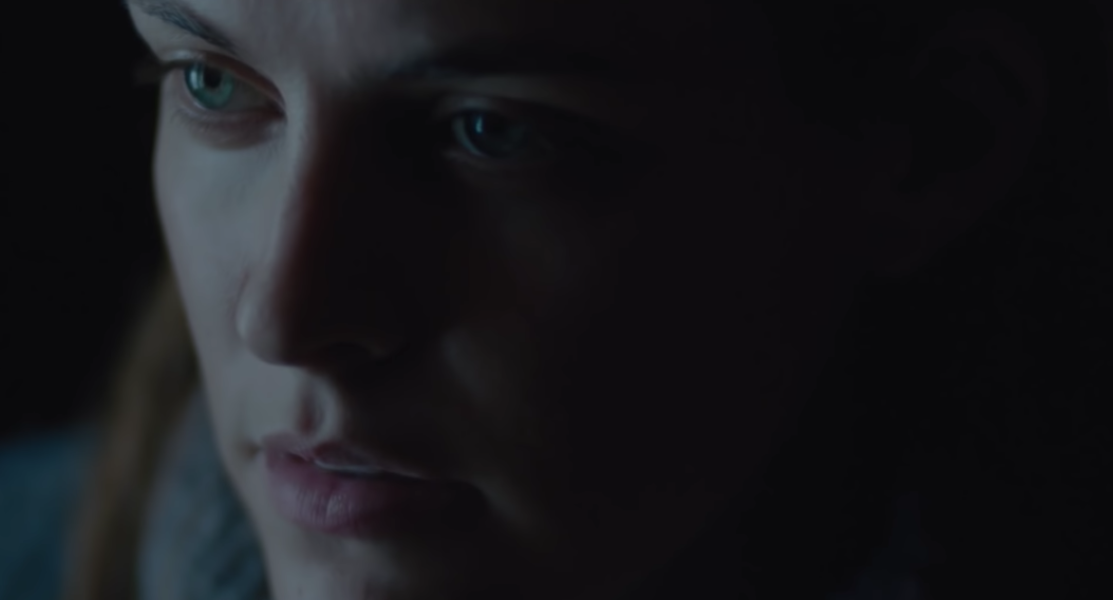
Comparisons to Ari Aster’s Hereditary are legitimate from pretty much the opening scene of The Lodge, Severin Fiala and Veronika Franz’s follow-up to Goodnight Mommy that mixes fanatic Christianity and a snowbound setting for a slow-burning freakshow. Fortunately, despite these many similarities, The Lodge successfully deviates by its chilling finale into something all its own. – Jake H. (full review)
I Was at Home, But… (Angela Schanelec; Feb. 14)
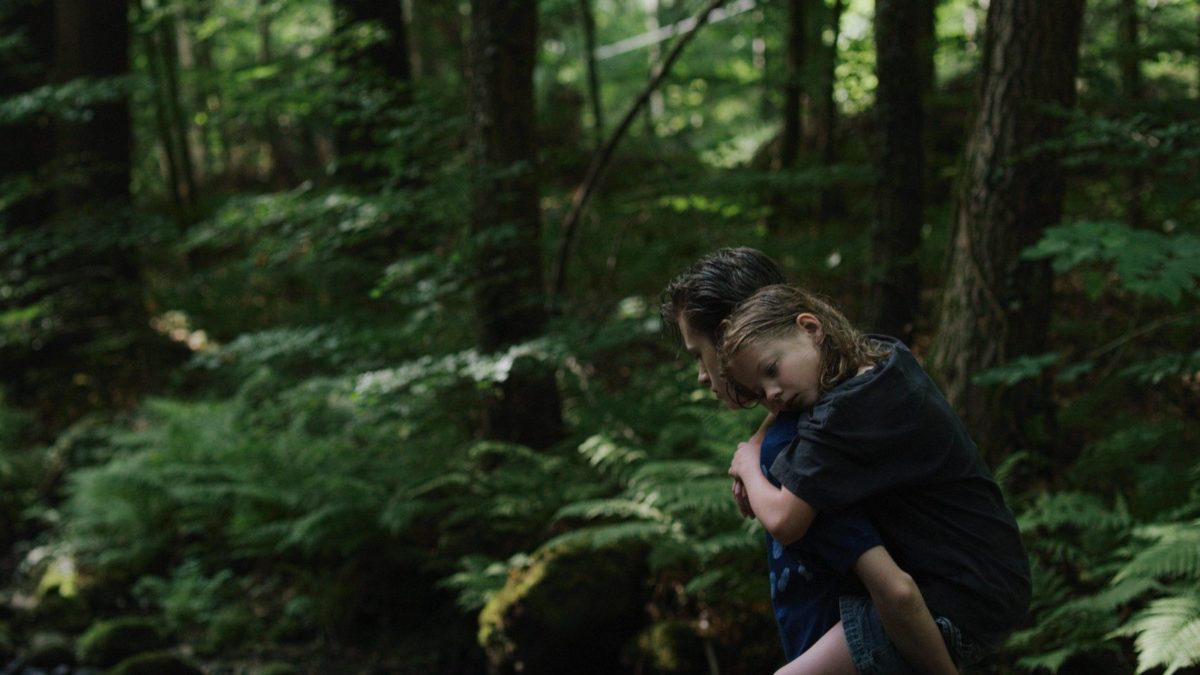
The Berlin film festival’s brochure notes for Angela Schanelec’s new puzzler of a movie map out some of the action: a 13-year-old boy who, after having gone missing for a week, returns home without a word. His father died two years ago and his mother, Astrid (Maren Eggert), struggles to confront single motherhood as her life stutteringly gets back to normal. But these plot points have to be wrung from the clutches of a willingly opaque film, and most comprehensive interpretations will involve hardy concentration and perhaps multiple viewings. For this is a film that stages itself in non-linear narratives, in severe, clinical long takes, in metaphorical observations, and even extended sequences of Shakespearean re-enactment–a film whose aesthetics may be intensely controlled and yet whose narrative is sprawling with meanings and readings. – Ed F. (full review)
Portrait of a Lady on Fire (Céline Sciamma)
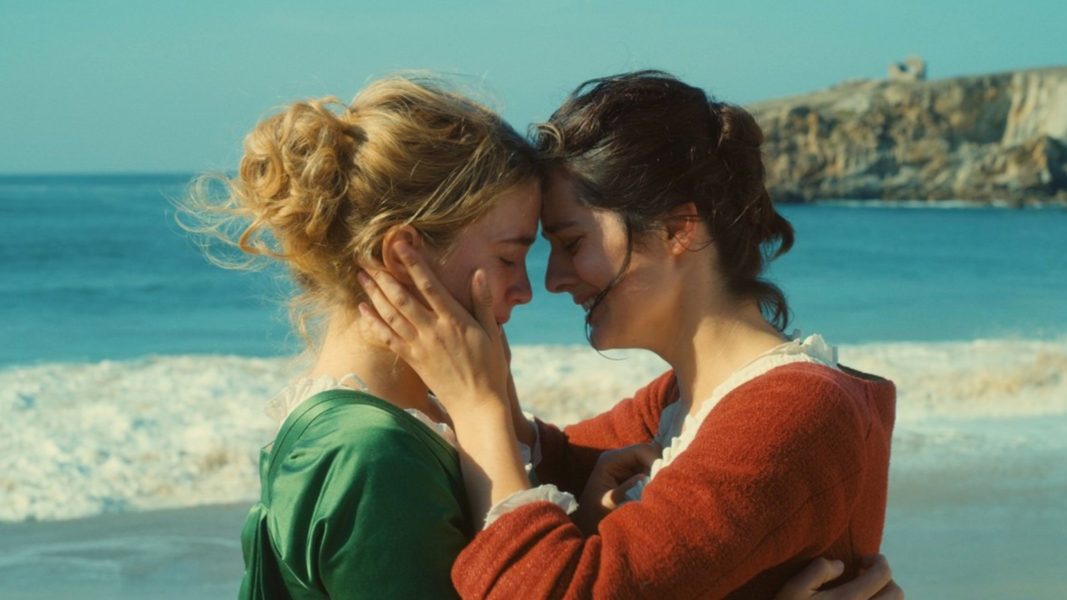
In a year of tremendously moving cinema, no film was as mesmerizing, as passionate, and genuinely overwhelming as Céline Sciamma’s Portrait of a Lady on Fire. It is an emotional experience at once familiar–the immersion into the past of The Piano, the window into the artistic process of La Belle Noiseuse, the thwarted romance of The Age of Innocence–but in the hands of Sciamma and stars Noémie Merlant and Adèle Haenel, it feels wholly original. Within minutes–perhaps the first glimpse of the haunting painting of a “lady on fire”–Portrait feels like a classic film. It ends on a moment of sublime sadness, yet leaves the viewer in a state of ecstasy. An extraordinary achievement. – Christopher S.
Buffaloed (Tanya Wexler; Feb. 14)

Set in the rough and tumble world of South Buffalo–the streets that raised tough guys like the crude former New York State gubernatorial candidate Carl Paladino–Buffaloed is a surprisingly fun comedy about the rise and fall of an up-and-coming hustler, gleefully played with a thick (and accurate) Western New York accent by Zoey Deutch. Deutch’s Peg Dahl aspires to not be another house-wife raising her kids on five-cent wings and starts running minor cons in high school until selling bootleg Buffalo Bills tickets lands her in prison. – John F. (full review)
Vitalina Varela (Pedro Costa; Feb. 21)
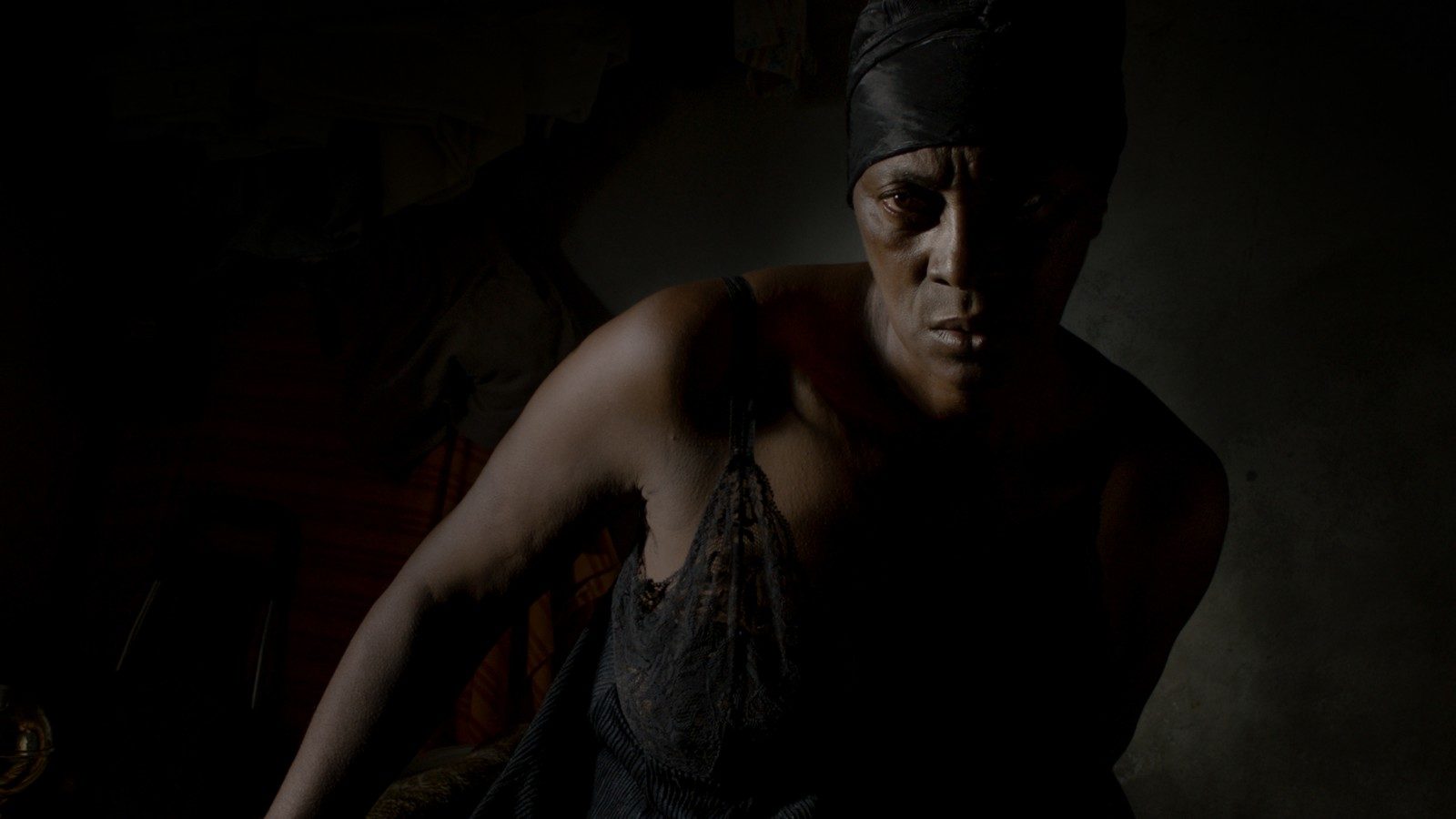
A dark back-alley drowned in shadow; towering concrete walls on either side; on the top right a row of headstones overlook; the glimmer of a walking stick emerges in the distance, and then a funeral procession. 15 minutes later a women disembarks from an airplane and is greeted not by family but by the airport’s cleaning staff. “There is nothing for you in Portugal, Vitalina,” they say. Welcome—or perhaps welcome back—to the world of Pedro Costa, the austere Portuguese director behind Colossal Youth (2006), In Vanda’s Room (2000), and other haunting works with which to grapple. – Rory O. (full review)
The Whistlers (Corneliu Porumboiu; Feb. 28)
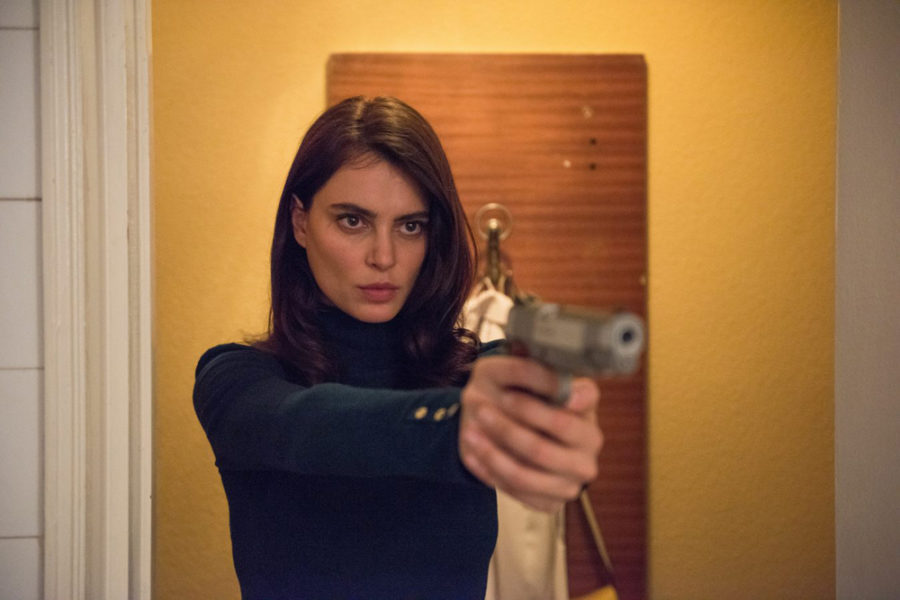
A month or so before No Time to Die arrives in theaters, we’ll be getting a spin on a James Bond-esque adventure from one of the world’s greatest international directors. Romanian director Corneliu Porumboiu’s stylish new film The Whistlers, which premiered at Cannes Film Festival, follows a police inspector who travels to the Canary Islands to uncover a plot of intrigue, mystery, murder, sex, and a strange new language. – Jordan R.
A White, White Day (Hlynur Pálmason; Feb. 28)
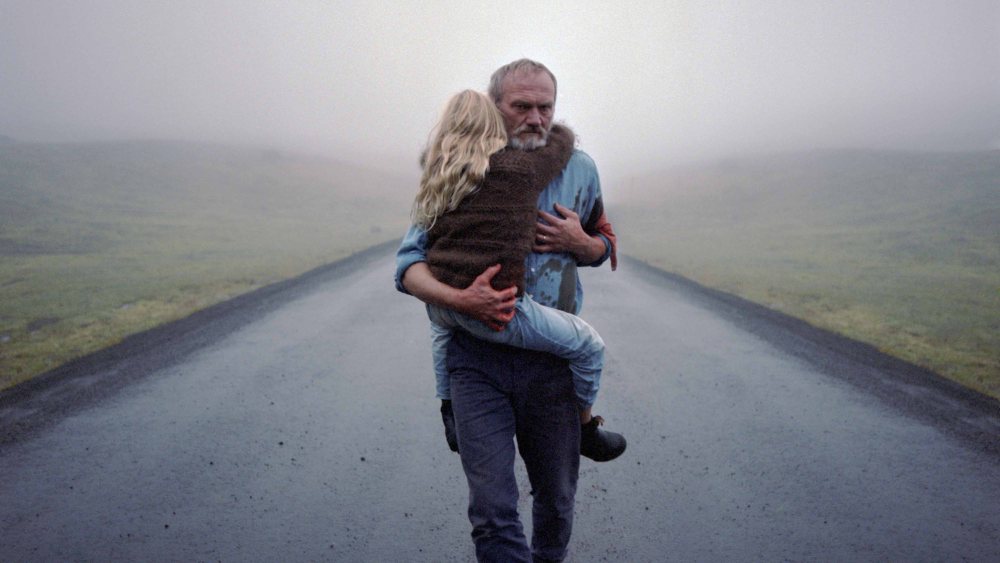
The phrase a “white, white day” refers to a moment when the landscape and sky are so dense with snow, mist or fog that it is no longer clear where the two meet. In Iceland–where this bleak meteorological phenomena often occurs–there is a saying that on a day like that one can converse with the dead. Hlynur Pálmason’s second feature A White, White Day begins with that saying. We then witness a death on one such day as a car veers off the road. The woman driving is–or rather was–the wife of the local police chief. Pálmason’s excellent new film is an examination of that man’s stages of grief. – Rory O. (full review)
Sorry We Missed You (Ken Loach; March 4)
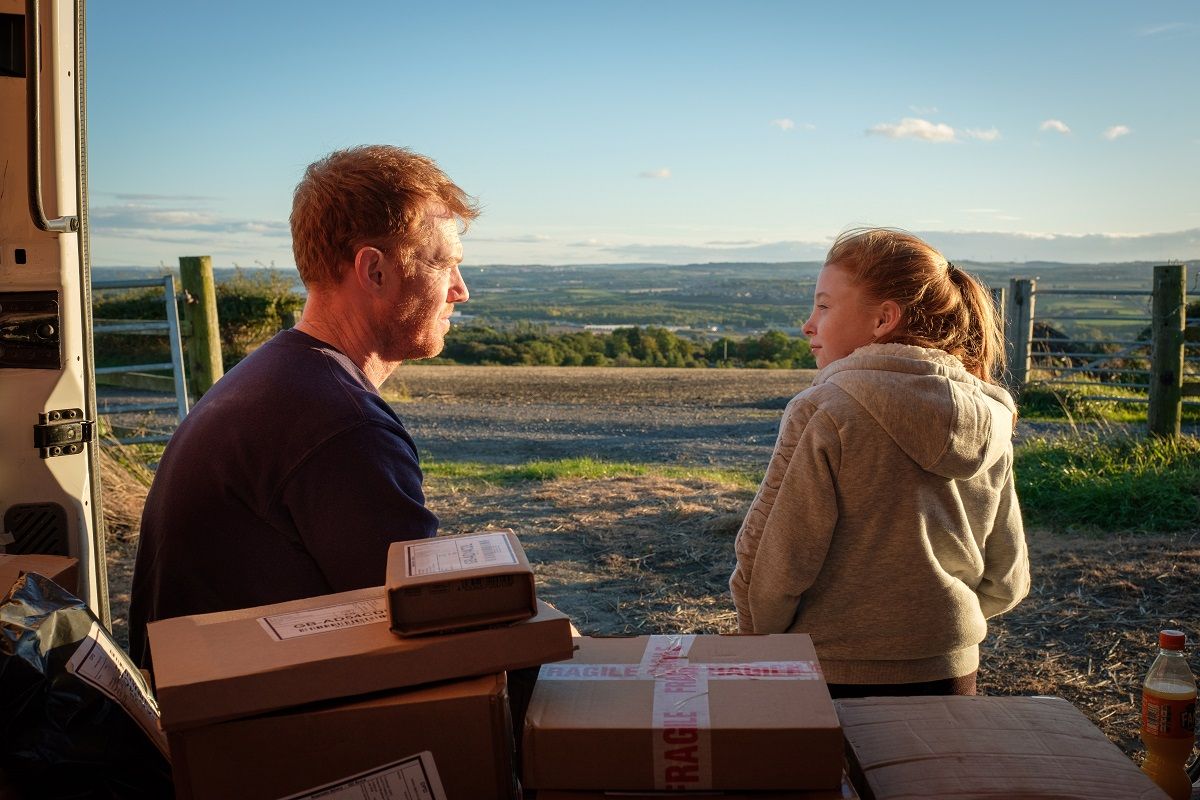
Ken Loach’s follow-up to his Palme d’Or-winning I, Daniel Blake is a masterful indictment of the strain of out-of-control capitalism that has dug its heels into post-crash industrialized nations. Sorry We Missed You is, simply, one of his best films that links the personal and the political. – Ed F. (full review)
Bacurau (Kleber Mendonça Filho and Juliano Dornelles; March 6)
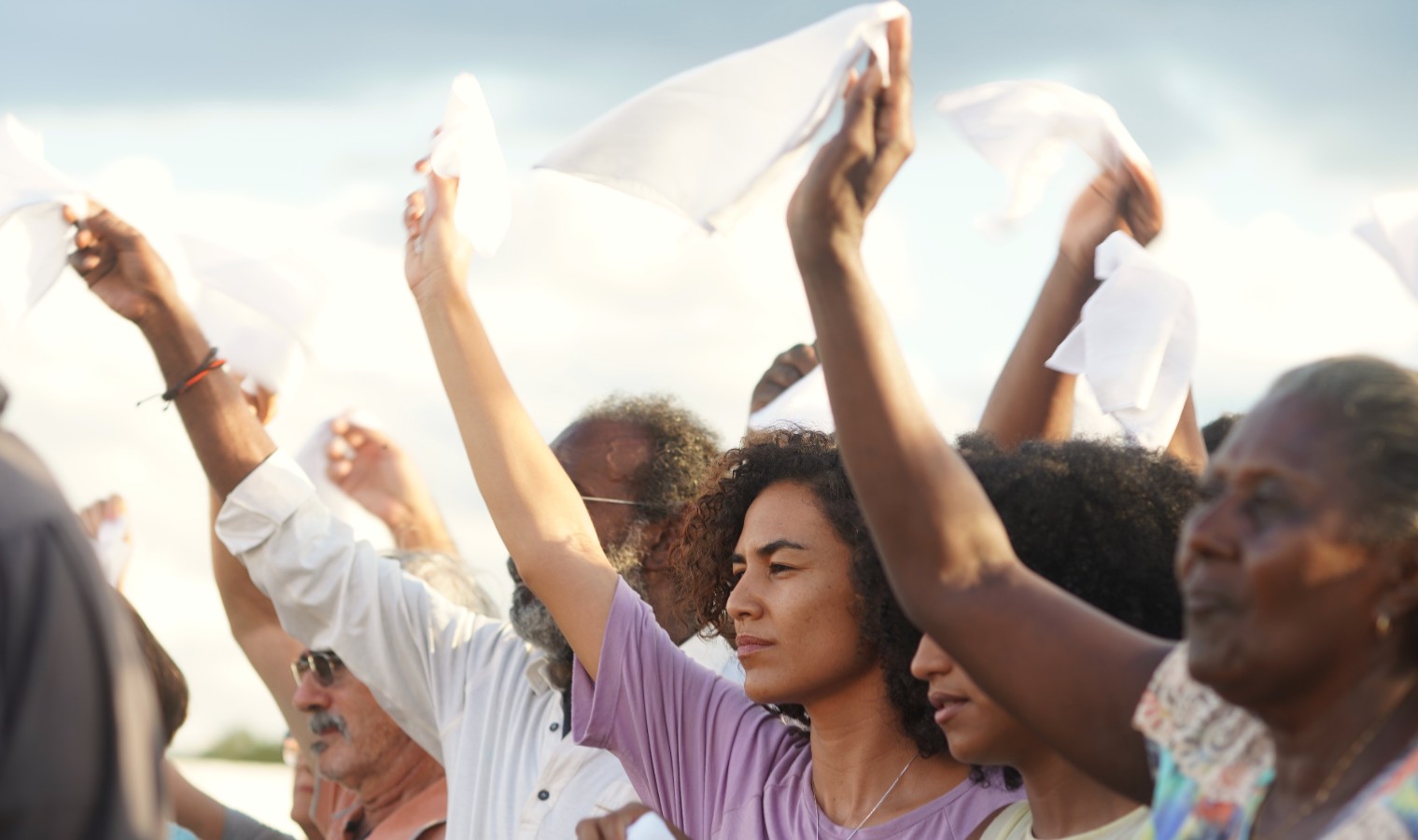
The school in the fictional village of Bacurau, located somewhere in the desert hinterlands of north-eastern Brazil, bears the name of one João Carpinteiro. If the throbbing synth track that introduces the opening credits, the film’s glorious widescreen photography, and the narrative’s Rio Bravo-indebted premise weren’t sufficiently indicative, Google Translate helpfully confirms that in English the name does indeed translate to that of the author of Assault on Precinct 13. Credit where credit’s due, as Bacurau owes a considerable debt to Carpenter–while also taking ample cues from another half-dozen genre auteurs–but in terms of complexity and ambition, this furious political allegory co-written and directed by Kleber Mendonça Filho and Juliano Dornelles (the production designer on Mendonça Filho’s previous features) is very much a case of the students outclassing the master. – Giovanni M.C. (full review)
First Cow (Kelly Reichardt; March 6)
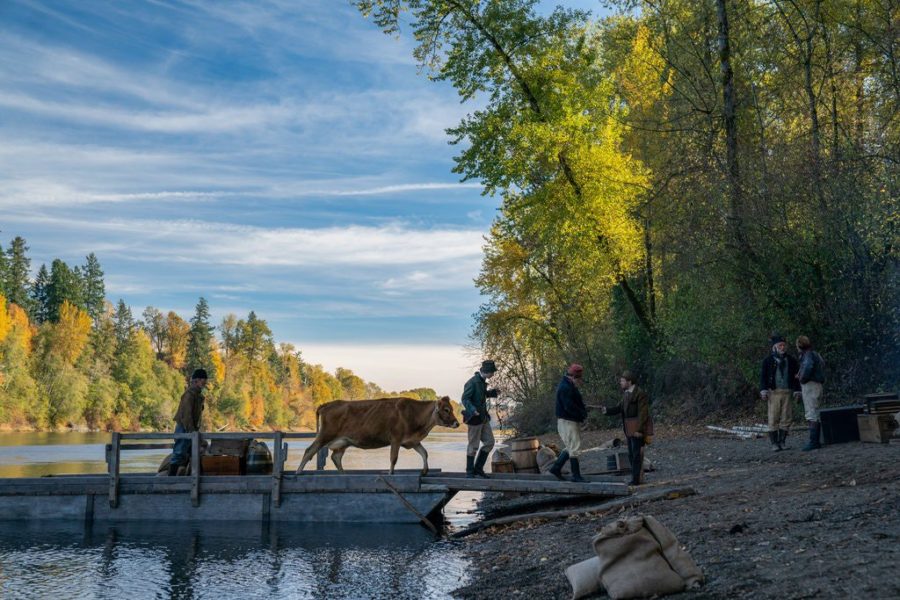
In First Cow, Kelly Reichardt carves out space for friendship and generosity amidst an otherwise selfish landscape. Set in the 1820s Pacific Northwest, a familiar realm for the Oregon-loyal Reichardt, the film’s twin protagonists are atypically sensitive souls, both towards each other and their environments, and yet they remain hyper-conscious of the cruelty that enervates within their community. Reichardt probes at the limitations of self-preservation as a life philosophy, even though it’s basically required to survive such a hardscrabble existence. What’s the purpose of survival if life doesn’t incentivize assisting your fellow man? – Vikram M. (full review)
The Wild Goose Lake (Diao Yinan; March 6)
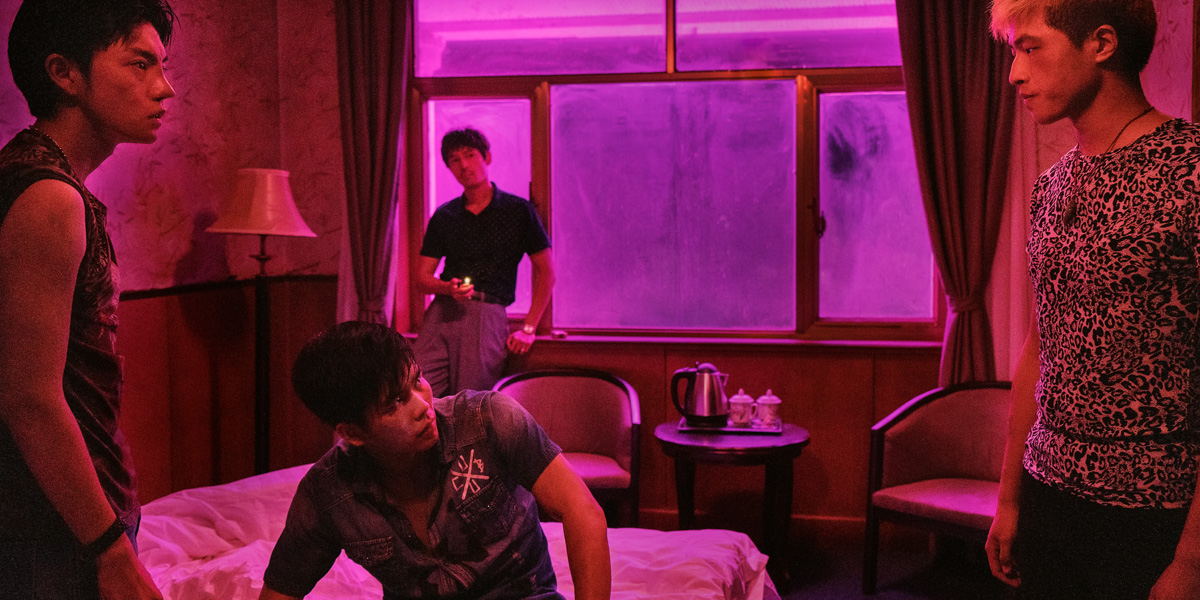
“Ever thought of running away?” “Where to?” This exchange comes late in The Wild Goose Lake, the latest film from stylish Chinese genre filmmaker Diao Yinan (previously awarded with Berlinale’s 2014 Golden Bear for his art film-inflected neo-noir Black Coal, Thin Ice), and within the film’s noir milieu the line fits. It’s shared between a gangster on the run and the call girl companion he’s been forcefully entwined with, however a strange combination of filmic tools means it comes tinged with a unique, near-cosmic portent, revealing even more so than his last film a much richer, wounded existentialism about two lonely, desperate people simply surviving in a dilapidated, contemporary Mainland China. – Josh L. (full review)
Heimat is a Space in Time (Thomas Heise; March 13)
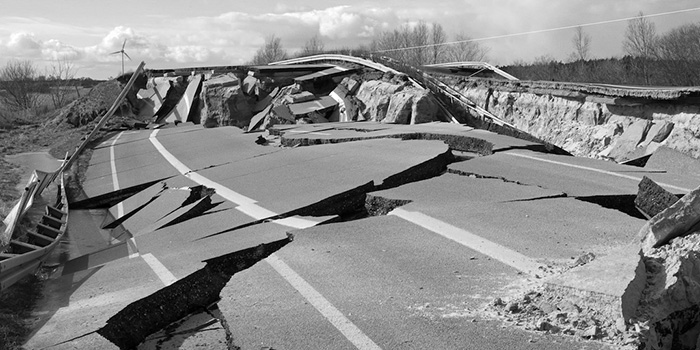
How much of our ancestry is tied to the history of the places we call home? While some of us would probably answer “None,” we’d be wrong. Just because your family tree was lucky enough to exist on the periphery of major historical moments as bystanders doesn’t mean you haven’t been impacted by wars, tragedies, inventions, and art in ways that defined your choices and subsequently the choices of your children. Why did my grandfather immigrate to America from Lebanon (then part of Syria) when he did? How did my father not getting drafted to Vietnam influence my sister’s birth and my own? Where does 9/11 fit in as an Arab American who never had an ethnic option on forms to check besides “Caucasian” previously? History defines us. With that said, however, some are embedded much deeper than others. One example is German documentarian Thomas Heise. – Jared M. (full review)
The Climb (Michael Angelo Covino; March 20)
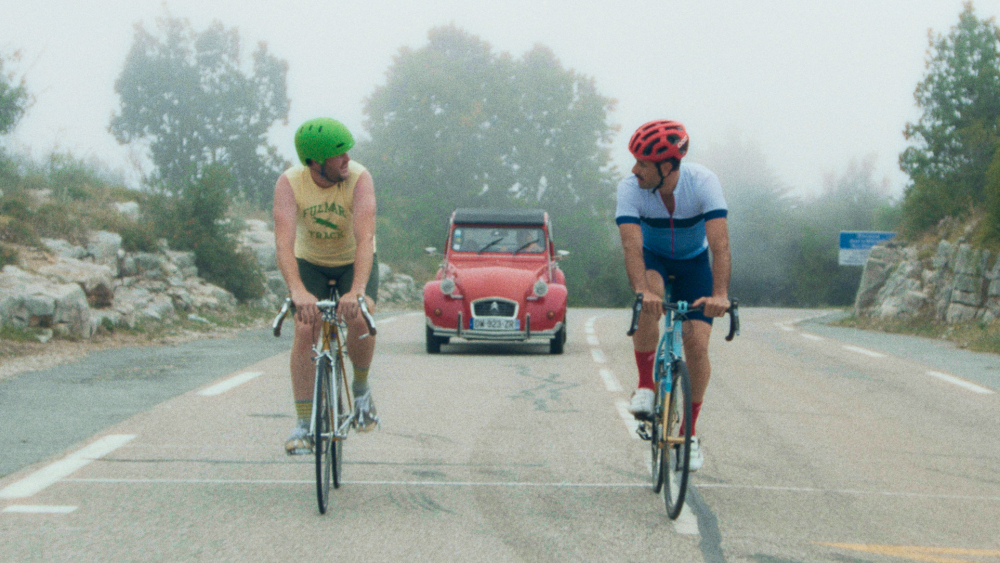
In The Climb–as occasionally in life–friendship can be an uphill struggle at the best of times. So how about the worst? Michael Angelo Covino’s auspicious feature debut confronts that topic as a barometer might an oncoming storm. It’s essentially a buddy comedy, although one of the caustic variety, and built to make you squirm just a little, like Judd Apatow put through a filter of something like Festen or Force Majeure. It’s also a debut with the huevos to reach for a kind of auteur status (along with directing, Covino is credited as co-writer, co-producer, and co-star), the sort of film that leaves people talking about things like “cinematic language.” – Rory O. (full review)
Deerskin (Quentin Dupieux; March 20)
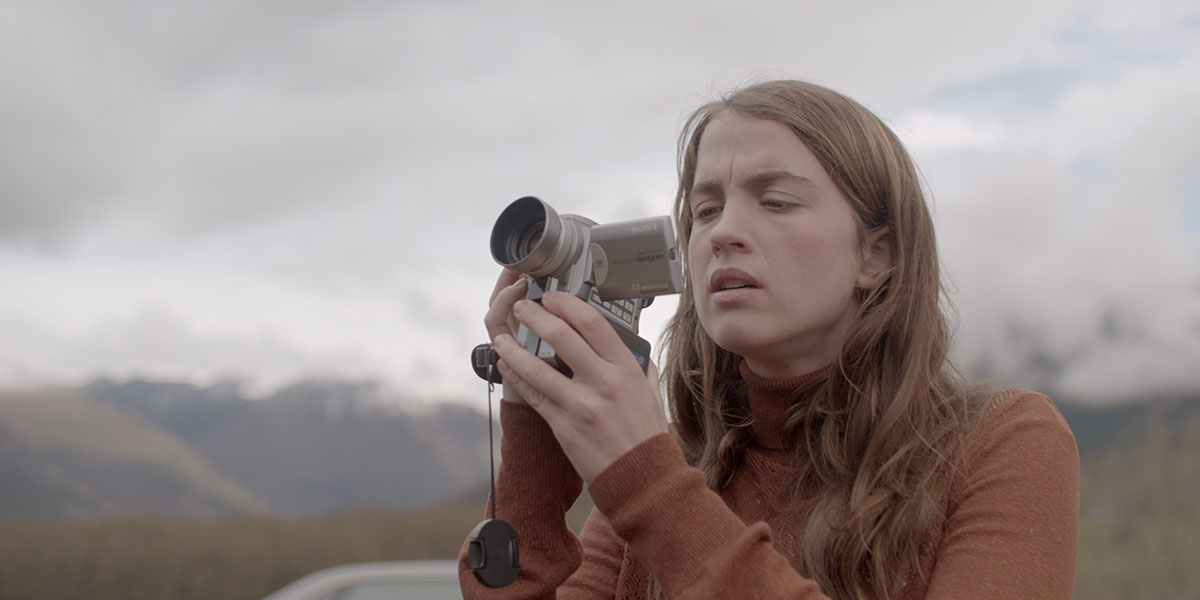
Quentin Dupieux’s Deerskin can essentially be summarized as Divorced Guy Energy: The Movie. A ribbing of masculinity that alternates between bone-dry and morbid humor to great effect, it may come across as an easily discernible film ideologically. Yet its placement in the Special Presentations section of the Toronto Film Festival rather than the more apt Midnight Madness programme perhaps speaks to it as a truly confusing object on at least the basis of overall comedic effect. – Ethan V. (full review)
Saint Maud (Rose Glass; March 27)
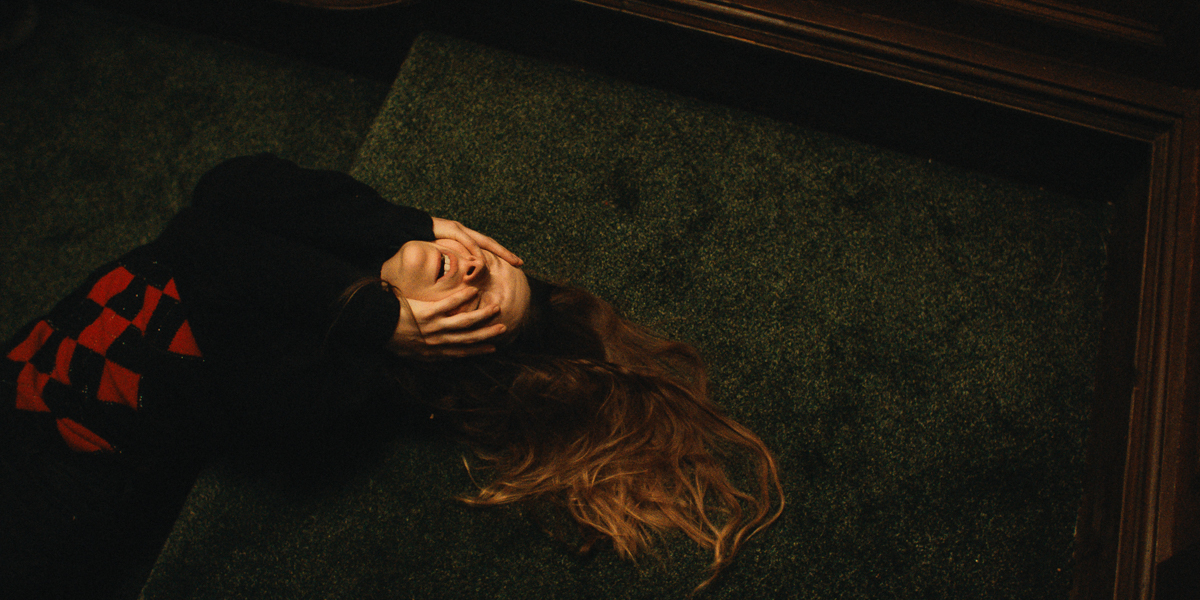
Is there such a thing as “A24 horror” now? I had that thought watching Rose Glass’ debut feature Saint Maud. It feels indebted to some of the distributor’s titles, namely First Reformed and The Witch in how it tackles faith, good, and evil. It’s interesting to see a film playing so much into the hand of what’s become trendy as counterprogramming to the overflow of Blumhouse thrill rides and the “Conjuring cinematic universe” (credit where it’s due: A24 hasn’t mastered elevated horror, although they’ve done a good job selling it). On this level, Glass’ film is a rousing success; after its premiere at the Toronto International Film Festival A24 picked it up for distribution, their only acquisition at the fest. – C.J. P. (full review)
Martin Eden (Pietro Marcello; April 17)
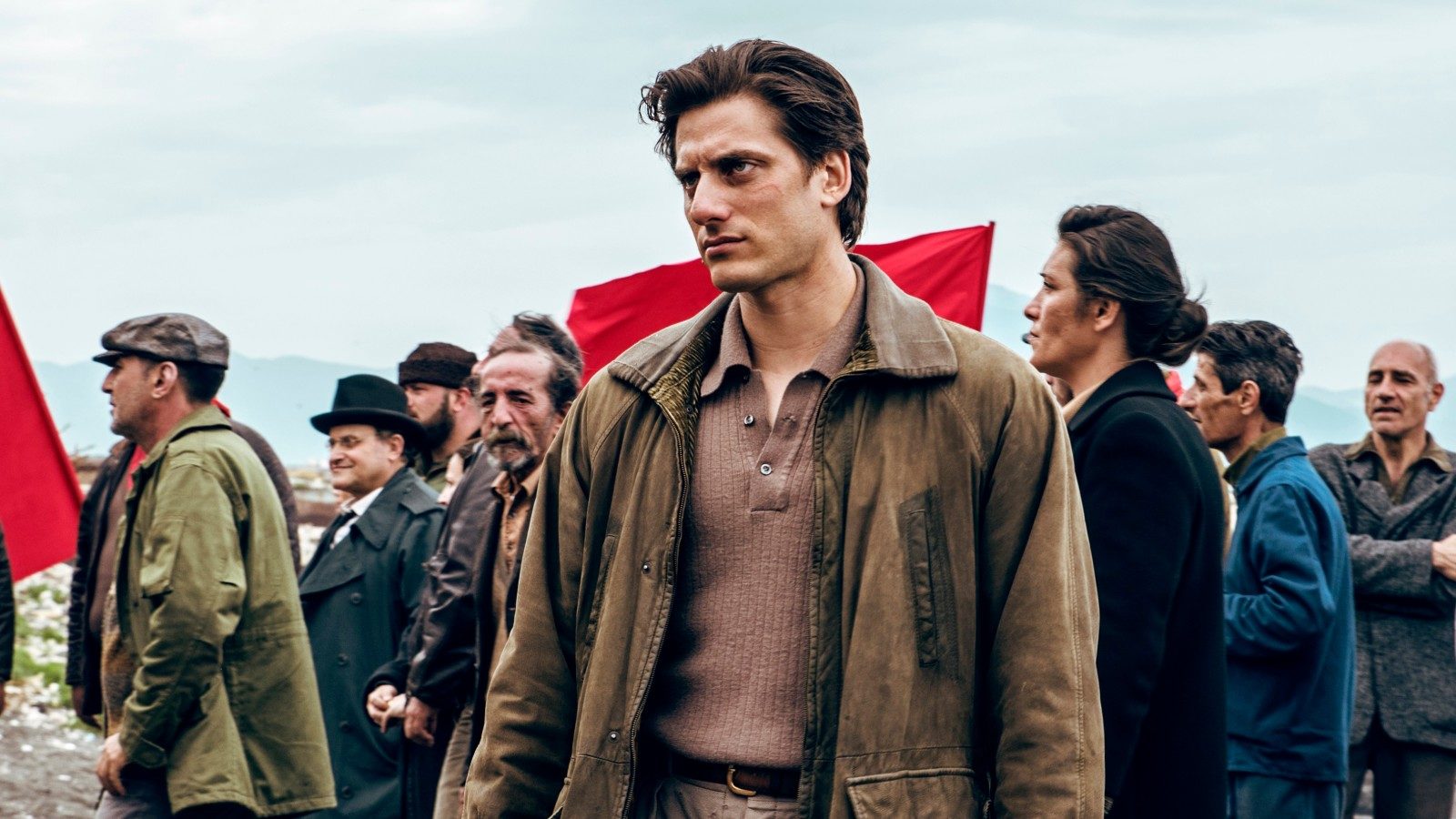
American novelist Jack London was an active proponent of socialism, his writing offering self-reflexive deconstructions of their values within distinct, incongruous, futuristic worlds, temporally far-flung but with technology and attitudes contemporaneous to the turn of the century. These qualities are prevalent throughout Martin Eden, Pietro Marcello’s fantastic second fiction feature that stands as a spellbinding synthesis of both London’s speculative ideas and Marcello’s documentarian instincts, capturing the clairvoyance and spirit of London’s writing via Marcello’s sensibilities as a predominantly non-fiction filmmaker. – Kyle P. (full review)
Just Don’t Think I’ll Scream (Frank Beauvais; April 22)
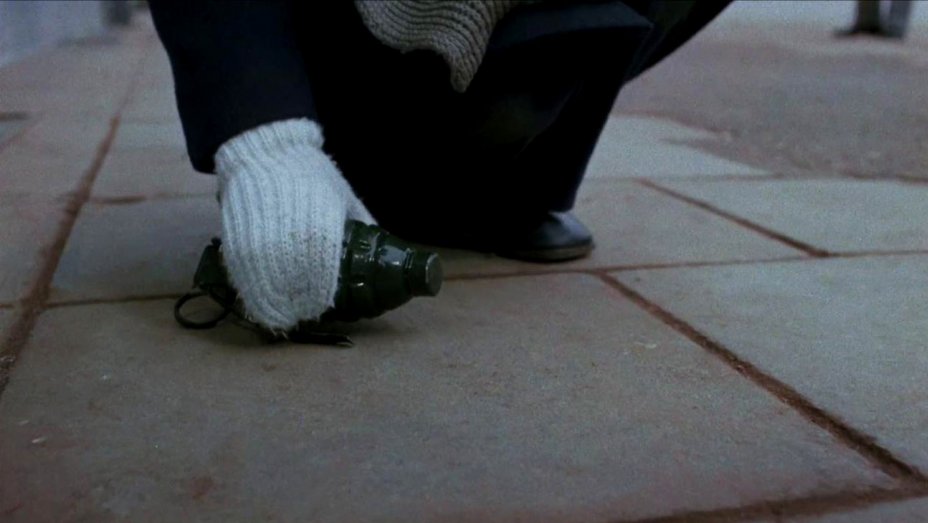
After watching over 400 films in the span of just around four months, director Frank Beauvais reflects on his life and what led to this cinematic hibernation in this impressive, rapidly-edited, and deeply personal cinematic essay. Created solely from clips of the films he watched, it’s far from the kind of video essays that dominate YouTube, rather selecting the briefest of moments, and usually the least-recognizable of shots, in crafting this self-exploration of a reflective, questioning mind. – Jordan R.
State Funeral (Sergei Loznitsa; May 1)

Prolific Ukranian filmmaker Sergei Loznitsa, continuing the found footage documentary style of latest efforts Maidan, The Trial, and The Event, composes a chronology of the four days of mourning that followed Stalin’s death. Composed of rarely seem archival footage–shot for Soviet film effort The Great Farewell, that would be banned before release by members of the new government–Loznitsa resurfaces the ambience of despair shared by the leader’s subjects. In doing so, he immerses the audience in an ephemeral moment of collective trauma and separates the funeral from its immediate history, in turn allowing for modern interpretations of Stalin’s regime and its eventual legacy in Soviet history. – Jason O. (full review)
Ema (Pablo Larraín; Summer 2020)
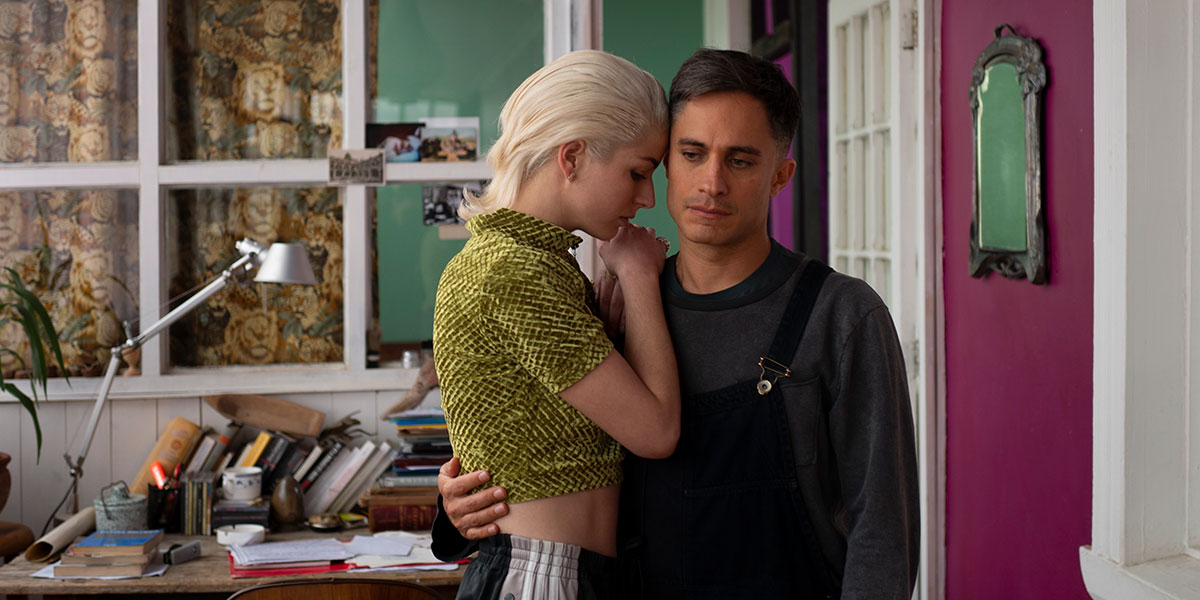
Movies have been named after far less interesting forces than the protagonist of Ema. Played with unblinking gravitas by the Chilean television actress Mariana Di Girólamo (a remarkable find), Ema is a contemporary dancer who stalks the neon lit streets of the Chilean port city of Valparaíso in track bottoms, cropped leopard-print tops, and slicked back peroxide blonde hair. She also has a propensity for arson. In the film she leaves her partner Gaston–who is the choreographer of her dance troupe (and also maybe gay)–in order to dance to Reggaeton hits on a rundown tarmac football pitch. The film is utterly infatuated with her. – Rory O. (full review)
Films with TBD Release Dates
About Endlessness (Roy Andersson)
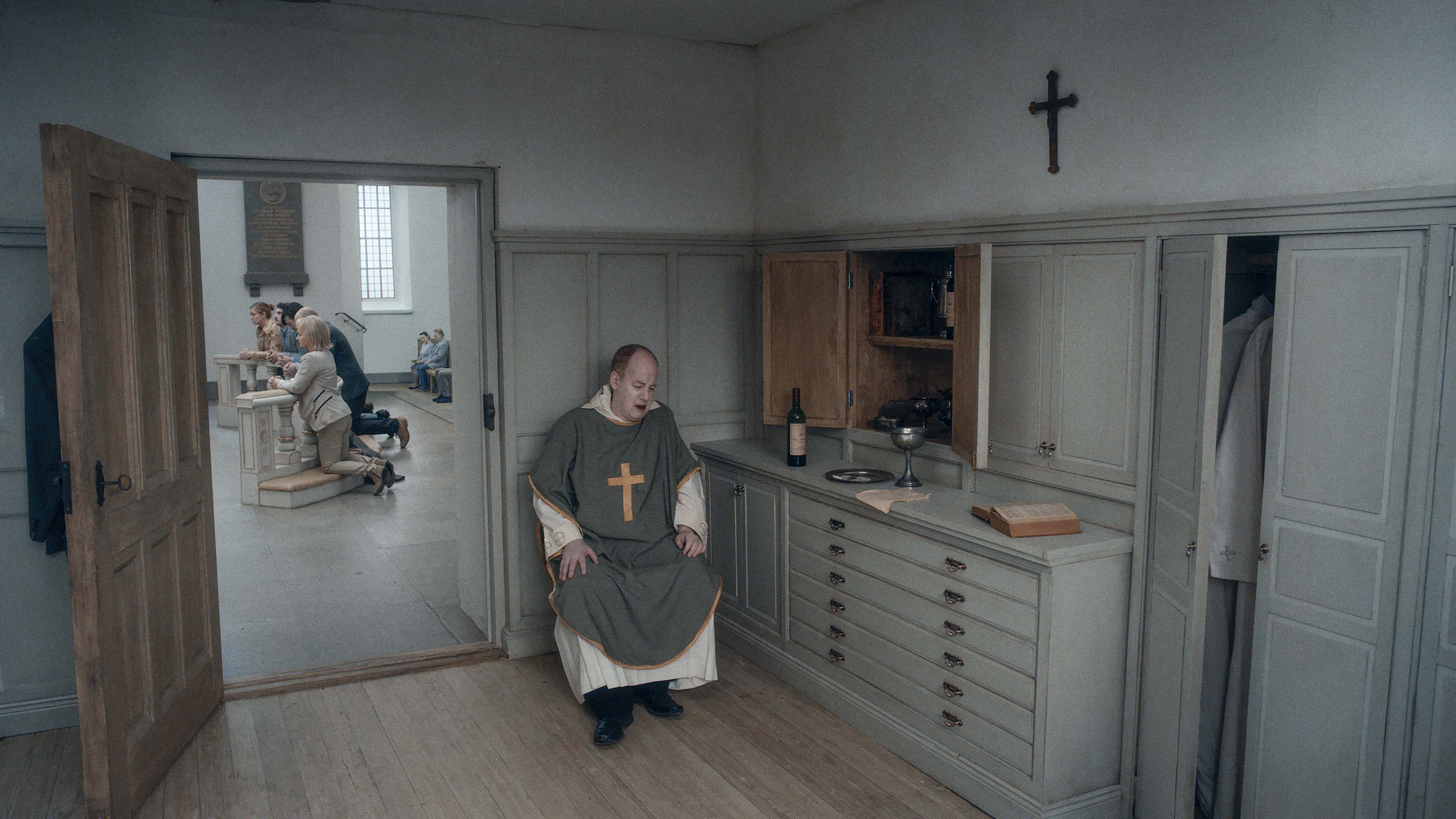
“What should I do now that I have lost my faith?” is the question that animates About Endlessness; this being the new film by Roy Andersson, it is delivered in a doctor’s waiting room, over and over again, in a creaky voice, by a dumpy man in late middle age who continues his plaint even after the doctor and his receptionist gruntingly force him outside into the hallway, from whence they can hear him scratching at the door like a zombie. About Endlessness is Roy Andersson’s fourth film of this century; it looks much like the previous three, and nothing like anything else ever made. – Mark A. (full review)
Anne at 13,000 ft (Kazik Radwanski)

Anne (Deragh Campbell) is in stasis. Doing four shifts a week at a Toronto daycare, she’s repeatedly given a hard time by co-workers (or the managerial state in general) for being “unprofessional,” i.e. daydreaming or playing too much with the kids. Perhaps a reflection of how many of us reach a certain point, say in our late 20s, where we realize that we’re not going to actually be made happy by our career. Beyond struggling at work, Anne’s interactions with friends, family, and Tinder dates alike all take on different plains of awkwardness; she struggles to maintain conversation, a straight face, or even a line of thought. – Ethan V. (full review)
Antigone (Sophie Deraspe)

A lot of people die during Sophocles’ Antigone. The death of Oedipus puts his sons Eteocles and Polynices on the throne, their deaths spark their titular sister to fight for the latter’s right to be buried, and her eventual suicide leads to more dead bodies as only a Greek tragedy could allow. While Canadian director Sophie Deraspe loosely adapts his play to tell her tale of North America’s immigration ills (through the specific lens of Montreal, Quebec), she leaves the killing behind. There’s good reason behind the decision, though, considering her film speaks about race, poverty, police brutality, and heartless judicial systems to reveal how there are often worse fates than death. Because what’s our reason for living if we’re no longer able to remember who we are? – Jared M. (full review)
The August Virgin (Jonás Trueba)

In the new movie The August Virgin, a young woman named Eva wanders the sidewalks and watering holes of Spain’s sunny capital on a series of increasingly hot, clammy nights leading up to August 15th–or “The Assumption,” as some like to call it. It is a heartbreakingly tender, intoxicating stroll of a movie, as disarming as it is melancholic and as finely considered regarding its protagonist’s mounting worries and catharses as it is obsessed with balmy urban nights and the effect that they seem to have on our human thirsts for conversation, a little booze and, yes, longing. – Rory O. (full review)
Babyteeth (Shannon Murphy)

Milla is not the first terminally stricken teen girl to grace a coming-of-age film, nor will she be the last. She may, however, be the most precocious: kitted out in oversized ‘80s woodland animal shirts and Day-Glo colors, and with a revolving cast of hairdos (for obvious reason), she enlivens and emboldens the new film Babyteeth with a punky energy that–try as lesser directors might–is not often seen in such things. Indeed, we’re not kissing Ansel Elgort in Anne Frank’s house anymore, Dorothy. – Rory O. (full review)
Bad Education (Cory Finley)
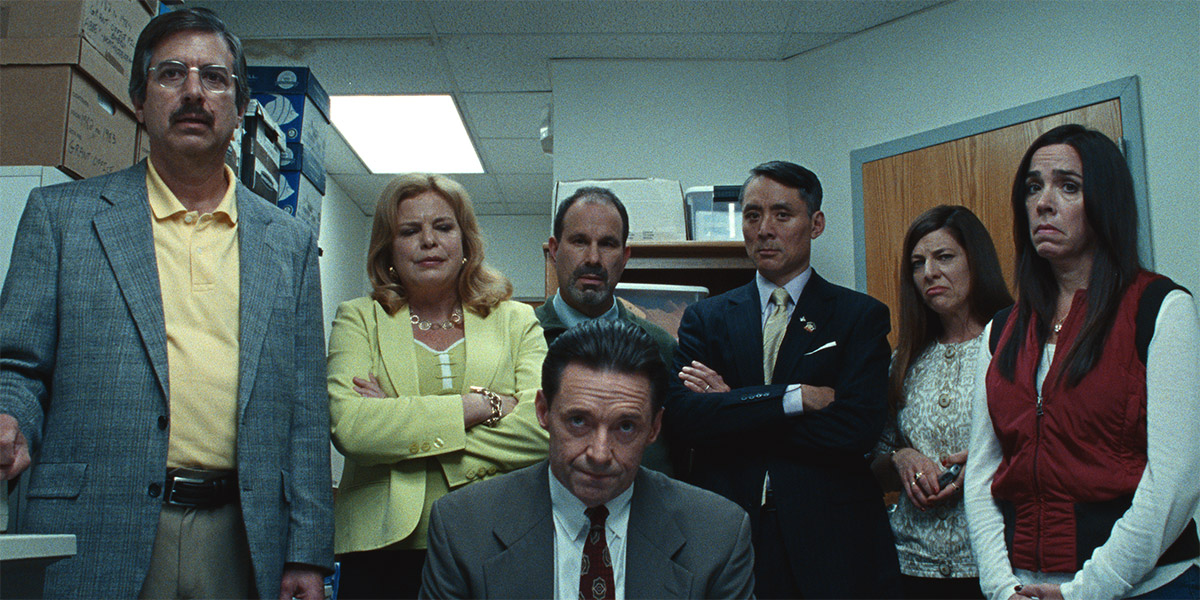
It should come as no surprise that a student uncovered the multi-million dollar corruption scandal in Nassau County’s Roslyn school district. I don’t know if the man at the top truly inspired this teenager to cement his own demise like director Cory Finley and screenwriter Mike Makowsky posit via their film Bad Education, but it’s a wonderful bit of narrative kismet to shine a light on the underlying issues that fostered an environment where this could happen. How much did our country not paying its education employees a commensurate salary factor in? Would superintendent Dr. Frank Tassone (Hugh Jackman) have insulated his assistant superintendent Pamela Gluckin (Allison Janney) once her fraud of taxpayers’ money was found out if her salary was better? You might be surprised. – Jared M. (full review)
Divine Love (Gabriel Mascaro)

Last year’s Sundance Film Festival opened with Tamara Jenkins’s Private Life, a thoughtful, witty drama exploring the struggles of infertility faced by a couple in New York City. Premiering at this year’s festival, Gabriel Mascaro’s strange, alluring Divine Love examines similar hardships, albeit in an entirely different place, time, and aesthetic conceit. Set in the near-future of 2027 in Brazil, Joana (Dira Paes) is a deeply religious woman who is trying to conceive a child by any means necessary. Through his exquisite vision, Mascaro tells a curious tale of spiritual commitment, marital strife, and the blurred separation of church and state, leading to an ultimately surprising, powerful conclusion. – Jordan R. (full review)
Fire Will Come (Oliver Laxe)
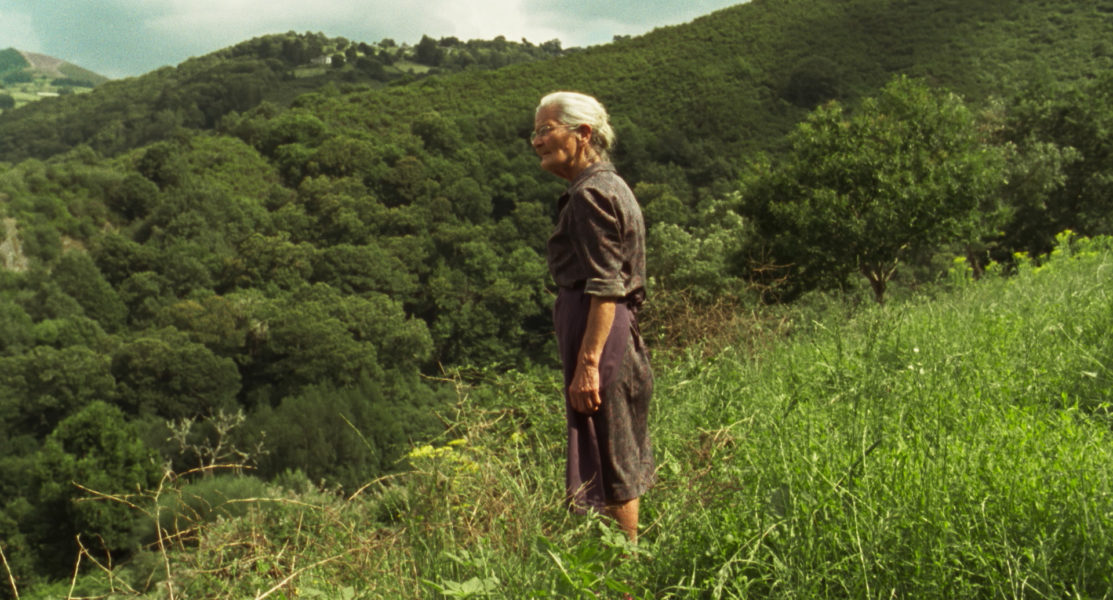
Laxe knows how to create a grounded, taut drama with a real sense of time and place. His opening sequence, a foggy, ethereal nighttime scene where diggers bulldoze giant Eucalyptus trees is infused with foreboding in a tangible natural terrain that towers over human activity. This is a region exposed to the elements, where people submit to nature as if it’s a greater power. Fire Will Come is, it should be no surprise, a prophetic title, and that’s part of the tension that Laxe carefully ratchets up. This is a stately film, sometimes to a fault, (even at 85 minutes some scenes seem overly drawn out) that builds slowly from silence to a crescendo, a natural disaster for whom Amador will become something of a sacrificial lamb. – Ed F. (full review)
Joan of Arc (Bruno Dumont)

Where Jeannette had effectively represented a stylistic and tonal departure from old Dumont, Joan of Arc is a detour to familiar, more somber moods. Part of this owes to the simple fact that for the martyr-to-be, now in her late teenage years, things have taken a dramatic turn. Opening in the year of the Lord 1428, Joan of Arc finds its eponymous heroine at the helm of the French army, besieging English-occupied Paris. It’s a war neither church elders nor the high military echelons seem all too optimistic about, and Joan of Arc’s first act follows the then-17-year-old struggling to rally a patriarchy behind her vision. – Leonardo G. (full review)
Liberté (Albert Serra)

Finally, evil in cinema is back! That was the impression running through the mind of this writer during all 132 minutes of Albert Serra’s Liberté, a film so thoroughly dedicated to bad, evil vibes–and yes, the beauty inherent in them–that it feels like something approaching a howl in the wind against the notions of good taste. – Ethan V. (full review)
The Platform (Galder Gaztelu-Urrutia)
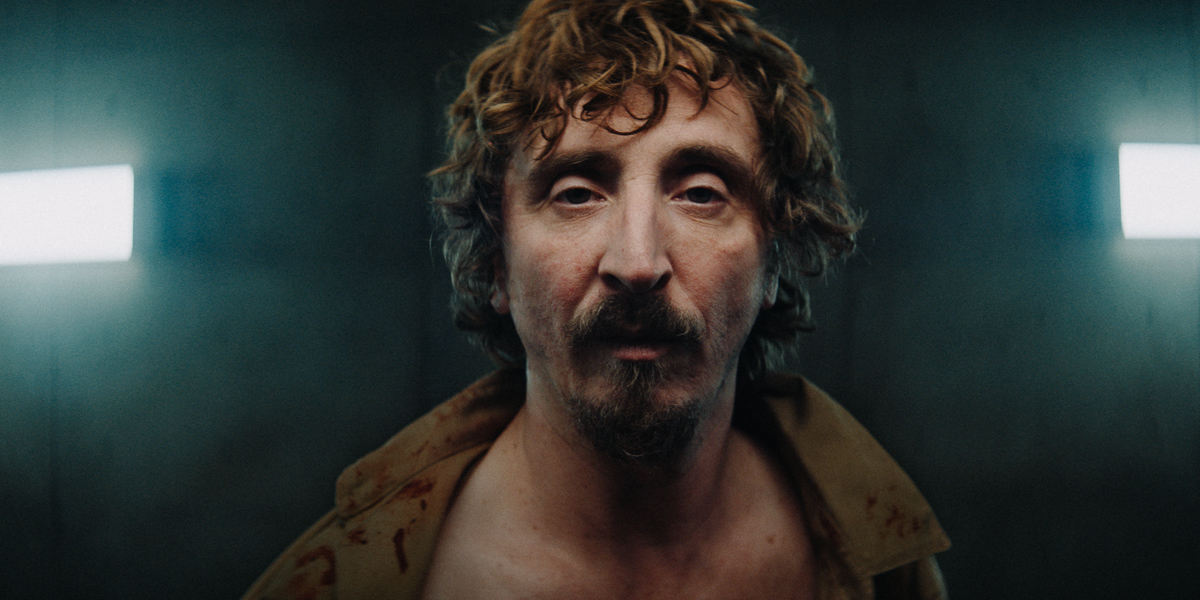
There are three types of people, according to the opening lines of The Platform: those at the top, those at the bottom, and those who fall between them. That class-structure conceit forms the backbone of this ingenious Spanish horror that won the Midnight Madness sidebar at this year’s Toronto Film Festival, a twisted fantasy that aims high with socio-political ideas but never lets that get in the way of the gruesome nastiness of its Saw-like thrills. – Ed F. (full review)
Sound of Metal (Darius Marder)

Sound of Metal opens with Riz Ahmed’s Ruben sitting at a drum kit while guitar distortions deafen us. Eventually, Olivia Cooke’s Lou starts screaming as his sticks connect for a steady beat until all hell breaks loose. We’re in this venue with them, the in-close camerawork proving Ahmed’s lessons paid off because he is in a groove and rocking out (not that he needed help on the second part considering his rap career as Riz MC and one half of Swet Shop Boys). With line drawn tattoos covering his chest, bleach-blonde hair, and that screaming, you’re probably assuming the after show will consist of booze and drugs before the visuals cut to a new day of health shakes and eggs in an RV. Appearances can be deceiving. – Jared M. (full review)
To the Stars (Martha Stephens)
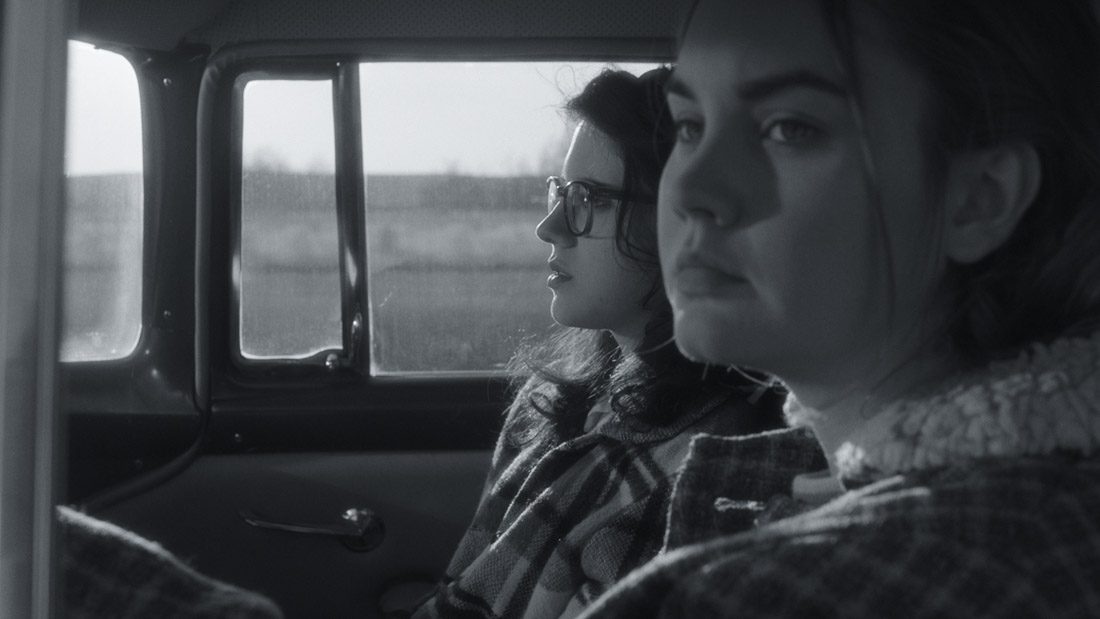
If today’s political landscape is any indication, much of the world is living in a conservative past, seething with disgust for another perspective they fail to empathize with, and emboldened by leadership that encourages such viewpoints. In her striking new drama To the Stars, Martha Stephens takes a character-focused look at such a small-town community full of repression, but rather than setting it in the present day, we’re placed in 1960s Oklahoma, a decision that speaks volumes for the ways we have and haven’t evolved as a country. – Jordan R. (full review)
Tremors and La Llorona (Jayro Bustamante)

Guatemalan director Jayro Bustamante turned in not one, but two quiet heartbreakers this year. In Tremors he captures the oppressive grip of an intolerant, judgmental society and the inhumanity of conversion camps with a formal elegance that’s at once steely in focus. The same classicism is applied with a twist of horror in La Llorona, where the genocidal past of the country is fearlessly recalled and examined through fresh, unblinking eyes. – Zhuo-Ning Su
The Twentieth Century (Matthew Rankin)

Look out: we have a new entry in the “Great Man” biopic subgenre, one that has spawned films as varied as John Ford’s The Long Gray Line and, uh, Jay Roach’s Trumbo. Joining the ranks is Matthew Rankin’s The Twentieth Century, which, with great aplomb, takes the piss out of Canadian history, showing us The (gradual) Taking of Power By William Lyon Mackenzie King, this nation’s 10th Prime Minister. – Ethan V. (full rview)
Lastly, there are some dated films we were mixed on or otherwise didn’t quite make the cut, including Troop Zero (Jan. 17), The Times of Bill Cunningham (Feb. 14), Young Ahmed (Feb. 21), Seberg (Feb. 21), Greed (Feb. 21), Burden (Feb. 28), Guns Akimbo (Feb. 28), The Truth (March 20), and The Personal History of David Copperfield (May 8)
And some currently undated ones: Big Time Adolescence, A Girl Missing, How to Build a Girl, Judy & Punch, Sea Fever, and True History of the Kelly Gang
